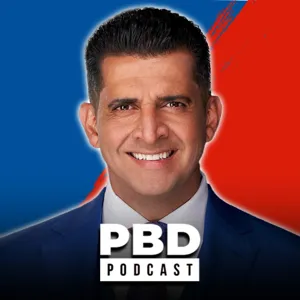Podcast Summary
Economic Crisis Widens Unemployment Disparities: The economic crisis has led to record unemployment, widened disparities, and prolonged economic uncertainty. Policymakers and employers must work together to accelerate recovery and address inequities.
The current economic crisis, brought about by government mandated lockdowns, has resulted in unprecedented levels of unemployment and economic hardship. Prior to the crisis, the labor market was showing signs of improvement, with low unemployment rates and wages on the rise. However, the sudden nature of the crisis has led to a prolonged period of economic uncertainty and recovery. Additionally, longstanding disparities in unemployment rates between different demographics, such as black Americans and women, have widened once again. As we move forward, there is a renewed focus on the role of both monetary and fiscal policy in accelerating the recovery and addressing these inequities. Employers, like Principal Asset Management, can also play a role by fostering empathy and understanding towards the invisible struggles faced by their employees during these challenging times.
Fed's Role in Addressing Racial Inequality in Labor Market: Congresswoman Ayanna Pressley suggests expanding municipal liquid facility, complying with Humphrey Hawkins Act, and not obstructing federal jobs guarantee to promote racial equity in Fed's response to economic crisis
Monetary policy and the Federal Reserve have contributed to racial inequality in the labor market. According to Congresswoman Ayanna Pressley, this can be traced back to the historical difference in how unemployment among black Americans and white Americans is perceived and addressed. She emphasized the need for the Fed to prioritize racial equity in its response to the current crisis, suggesting three steps: expanding and modifying the terms of its municipal liquid facility, complying with the Humphrey Hawkins Act to directly target the black unemployment rate, and not standing in the way of a federal jobs guarantee. Pressley argued that the Fed has a unique role in addressing economic disparities, and these actions could help ensure an equitable economic recovery.
The Fed's Role in Addressing Economic Disparities and Inequities: The Fed, as an unelected body, can play a significant role in reducing economic disparities and addressing racial inequality by focusing on black unemployment and implementing bold actions. A government-wide approach and acknowledging past mistakes are necessary for progress.
The Federal Reserve, as an unelected body of officials, has a crucial role to play in addressing the economic disparities and inequities, particularly in relation to black unemployment, during this national reckoning. Reverend William Barber's call for a third reconstruction emphasizes the need for bold action to meet the scale and scope of the crisis. The Fed's potential as an equalizer is significant, but it also needs to confront its past role in exacerbating racial and economic inequality. The Humphrey Hawkins Act, which requires the Fed to reduce disparities and unemployment between marginalized groups, highlights the need for a government-wide approach to exacting every available tool to address these issues. The Fed's focus on black unemployment as a proxy for the state of the economy is significant, as it acknowledges the disproportionate impact of economic crises on marginalized communities. This moment calls for confronting the past while charting a new path towards rooting out systemic racism and inequity in our economy.
Balancing Urgent Needs with Systemic Changes: Policy makers must balance current crises with systemic changes, advocate for progressive priorities, and acknowledge the Federal Reserve's role. Public pressure and bipartisan cooperation are crucial for relief packages and addressing critical needs. The Fed must address its own diversity issues, and policy makers must provide support.
Policy makers must balance the urgent need to respond to current economic crises with the opportunity to redesign systemic issues. This requires bold action and public advocacy, especially on issues like racial injustices and economic disparities. The role of monetary policy and the Federal Reserve in advancing progressive priorities is often underappreciated, and it's crucial to acknowledge and lift up this role. The current political climate in DC presents challenges in passing relief packages, but public pressure and bipartisan cooperation are key to addressing the ongoing unemployment crisis and other critical needs. The Federal Reserve must also acknowledge and address its own diversity issues, and policy makers must provide support in this area.
Supporting people during economic downturns: Extend unemployment benefits, provide recurring stimulus payments, protect renters from eviction, and address long-term economic issues like student debt and racial equity.
During these challenging economic times, particularly in Massachusetts with the highest unemployment rate in the nation, it's crucial to prioritize the well-being of people over ideological agendas. This means extending unemployment benefits, providing recurring economic stimulus payments, and protecting renters from eviction. The financial burden continues even during economic downturns, and the Senate must act with urgency. Regarding debt forgiveness, finding a solution that supports both renters and the financial system is necessary. Furthermore, addressing long-term economic issues, such as student debt and racial economic equity, should be a priority if Democrats gain control of both houses of Congress and Biden wins the White House. These policies aim to improve public health, ensure a strong economy, and promote equity.
Bold actions for racial economic equity: Recognizing the need for disruptive change and the importance of equity and justice in policy-making can help overcome opposition to policies like a federal jobs guarantee, Medicare for all, housing justice, and economic justice reforms.
Ensuring racial economic equity requires bold action and a focus on human rights, including a federal jobs guarantee, Medicare for all, housing justice, and economic justice reforms. The obstacle to implementing such policies lies in a lack of political will, empathy, and urgency. People's instinctive opposition to bailouts and policies that seem good for everyone can be overcome by recognizing the need for disruptive change and the importance of equity and justice in policy-making. The ongoing social movements, such as Black Lives Matter, reflect the unrest in American lives caused by policy-created inequities and racial injustices. The Fed and Congress have a role to play in this reckoning by leading, legislating, and acting in a way that truly values black lives.
Congresswoman Presley's concerns over Powell's understanding of racial economic gaps: Policymakers, including the Fed, face pressure to address racial economic disparities. The Humphrey Hawkins Act could be used, but redefining full employment and addressing public cynicism towards bailouts are necessary.
There is a growing expectation for policymakers, particularly the Federal Reserve, to address racial economic gaps in a meaningful way. Congresswoman Presley expressed concerns about Powell's understanding of this issue and whether he should be reappointed. The Humphrey Hawkins Act, which requires the Fed to maintain maximum employment, was discussed as a potential tool for addressing racial disparities. However, there is a need to redefine full employment and consider the impact of low interest rates on asset prices and financial inclusion. Additionally, there is a public cynicism towards bailouts and stimulus measures, and it is essential to ensure that these policies benefit a broader population. Overall, there is a mandate for policymakers to do something different, but the challenge lies in constructing effective policies under time pressure and maintaining momentum.
Addressing the unequal distribution of gains in a booming housing market: Government attention needed to ensure everyone benefits from a booming housing market, not just absolute gains, and perception of relative gains vs absolute gains can impact satisfaction.
While a booming housing market may bring absolute gains to some, it does not ensure that everyone benefits equally, particularly in densely populated areas where many people are renting. The issue requires attention at various levels of government, and raises philosophical questions about the importance of absolute versus relative gains. The Congresswoman Ayanna Pressley emphasized that this is a crisis that needs addressing, and the conversation around this topic is likely to continue in the coming year. It's important to remember that even if everyone gains something from a policy, the perception of relative gains versus absolute gains can still lead to dissatisfaction. The housing market is just one example of a larger economic issue that requires thoughtful consideration and collaboration from policymakers and citizens alike.






